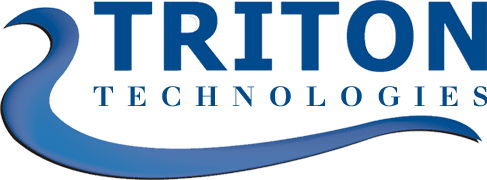The shift to remote work has been one of the most significant changes in the business world in recent years. The Coronavirus pandemic accelerated this transition, and for many, working from home (WFH) has become a new norm. As employees and organizations adapt to this remote work environment, the use of technology to ensure security and efficiency is more crucial than ever. One such technology that has become indispensable in this context is the Virtual Private Network (VPN). This article explores the role of VPNs in remote work, highlighting the benefits of VPNs, the importance of VPNs when working remotely, and the key issues they address.
What is a VPN?
A Virtual Private Network (VPN) is a tool that creates a secure, encrypted connection over a less secure network, such as the internet. VPNs mask your IP address, making your online actions harder to trace. By encrypting your data, VPNs protect sensitive information from unauthorized access, ensuring that your online activities remain private and secure.
The Benefits of VPNs in Remote Work
1. Enhanced Security
One of the primary benefits of a VPN is its ability to enhance security. In a remote work setting, employees often connect to the internet through public or less secure networks. Without a VPN, this can expose sensitive company data to potential cyber threats. VPNs protect data by encrypting it, making it nearly impossible for hackers to intercept or read the information. This encryption is crucial for safeguarding proprietary business information, personal data, and financial transactions, which are all common activities in remote work.
2. Privacy Protection
VPNs also play a significant role in protecting privacy. When working remotely, employees might access company networks and sensitive data from various locations. A VPN masks the user’s IP address and location, ensuring that third parties cannot track or log their online activities. This anonymity is particularly important for businesses that handle confidential information and want to prevent potential data breaches.
3. Safe Access to Company Resources
Using a VPN at work allows remote employees to access company resources as if they were on a local network. This secure access is essential for tasks that require connectivity to internal systems, databases, and applications. VPNs enable employees to connect to their work computers, access shared files, and collaborate with colleagues without compromising security. This seamless access to company resources ensures that remote work remains productive and efficient.
4. Protection Against Cyber Threats
Remote work environments are often more susceptible to cyber threats due to the use of unsecured home networks. VPNs help mitigate these risks by providing a secure connection that prevents unauthorized access. They protect against various cyber threats, including malware, phishing attacks, and other forms of cybercrime. By securing the connection between remote workers and company networks, VPNs help maintain the integrity of business operations and protect against potential security breaches.
5. Secure Online Transactions
For remote workers who handle financial transactions, whether for business expenses or personal use, VPNs provide an extra layer of security. Public Wi-Fi networks, such as those in cafes or airports, are particularly vulnerable to cyber attacks. Using a VPN while conducting online transactions ensures that sensitive information, such as credit card details and banking credentials, is encrypted and secure from prying eyes.
Why is a VPN Important When Working Remotely?
As remote work becomes more prevalent, the importance of a VPN in maintaining a secure and efficient work environment cannot be overstated. VPNs address several key issues that remote workers face:
1. Security Risks with Unsecured Networks
Remote workers often connect to the internet through various networks, many of which may not be secure. Public Wi-Fi networks, in particular, are prone to cyber threats and can be a prime target for hackers. A VPN protects against these risks by encrypting the connection, ensuring that sensitive information remains secure even when using unsecured networks.
2. Access to Restricted Resources
Many companies have internal systems and resources that are only accessible from within the company’s network. VPNs enable remote workers to bypass geographical restrictions and access these resources securely. This capability is essential for employees who need to access files, applications, and databases that are critical to their work.
3. Compliance with Data Protection Regulations
Organizations are often required to comply with data protection regulations and industry standards. VPNs help ensure compliance by providing secure access to data and protecting it from unauthorized access. This compliance is crucial for avoiding legal issues and maintaining trust with clients and partners.
Explore our Managed Service Offerings
Worcester’s Top Managed Service Provider
Common VPN Issues Working from Home
While VPNs offer significant benefits, they are not without their challenges. Here are some common VPN issues that remote workers might encounter:
1. Connection Speed and Reliability
One common issue with VPNs is the impact on connection speed. Encrypting data can sometimes slow down internet speeds, which may affect productivity. To address this, it’s important to choose a high-quality VPN service with robust servers that offer fast and reliable connections. Ensuring that the VPN provider has a good track record for speed and uptime can mitigate these issues.
2. Compatibility with Devices and Applications
VPNs may sometimes have compatibility issues with certain devices or applications. For instance, some company applications might not function correctly when accessed through a VPN. To resolve this, it’s essential to ensure that the VPN service is compatible with the devices and software used by remote workers. Consulting with IT professionals to configure the VPN appropriately can help overcome these compatibility issues.
3. User Training and Awareness
Effective use of a VPN requires proper training and awareness among remote workers. Employees need to understand how to use the VPN correctly and be aware of its importance in maintaining security. Providing training and resources to help employees use VPNs effectively can prevent mistakes and ensure that security measures are followed.
VPN for Remote Workers: Best Practices
To maximize the benefits of VPNs and address potential issues, here are some best practices for remote workers:
1. Choose a Reputable VPN Provider
Selecting a reliable VPN service is crucial for ensuring security and performance. Opt for a reputable provider with a strong track record of protecting user data and offering high-speed connections. Avoid free VPN services, as they may have limited security features and could potentially compromise your data.
2. Configure VPN Settings Properly
Ensure that the VPN is configured correctly to provide the best security and performance. This includes setting up encryption protocols, enabling features such as a kill switch (which disconnects the internet if the VPN connection drops), and configuring access permissions appropriately.
3. Regularly Update VPN Software
Keep the VPN software up-to-date to benefit from the latest security patches and performance improvements. Regular updates help protect against vulnerabilities and ensure that the VPN continues to function effectively.
4. Educate Remote Workers
Provide training and resources to remote workers on the importance of VPNs and how to use them effectively. Ensuring that employees are aware of best practices and potential risks can help maintain security and efficiency.
In the era of remote work, VPNs have become a critical tool for ensuring secure and efficient operations. The benefits of VPNs, including enhanced security, privacy protection, and safe access to company resources, make them essential for remote workers. While there are challenges associated with VPNs, such as connection speed and compatibility issues, following best practices can help address these concerns. As remote work continues to evolve, leveraging VPN technology effectively will remain a key component of maintaining security and productivity in the digital workplace.
Discover our IT Solutions for Your Industry
Worcester’s Top Managed Service Provider
How Triton Technologies Can Help
As remote work continues to evolve, managing the complexities of secure connectivity becomes increasingly important. Triton Technologies offers specialized solutions to enhance the VPN experience for remote workers, ensuring that businesses maintain robust security and operational efficiency. Here’s how Triton Technologies can assist in optimizing your VPN setup:
1. Customized VPN Solutions
Triton Technologies provides customized VPN solutions that meet the specific needs of your business. They work closely with organizations to understand their unique requirements and design VPN configurations that align with their security policies and operational needs. Whether you need a VPN for a small team or a large organization, Triton Technologies can deliver a solution that fits your scale and complexity.
2. Smooth Integration with Existing Systems
One of the challenges of implementing a VPN is ensuring compatibility with existing IT infrastructure. Triton Technologies excels in integrating VPN solutions with your current systems, including HR platforms, IT management tools, and other business applications. This seamless integration ensures that your VPN functions smoothly alongside your existing technology stack, minimizing disruptions and enhancing overall efficiency.
3. Enhanced Security Measures
Triton Technologies goes beyond basic VPN functionality by implementing advanced security measures. Their solutions include advanced encryption protocols, multi-factor authentication, and real-time monitoring to safeguard your data. These measures help protect against cyber threats and ensure that remote workers have a secure connection at all times.
4. Performance Optimization
Understanding that VPNs can sometimes impact connection speed, Triton Technologies focuses on optimizing VPN performance. They offer solutions that balance security with speed, ensuring that remote workers experience minimal latency and maintain productivity. By selecting high-performance servers and configuring VPN settings for optimal efficiency, Triton Technologies helps keep your remote operations running smoothly.
5. Ongoing Support and Maintenance
The implementation of a VPN is not a one-time task; it requires ongoing management and maintenance. Triton Technologies provides continuous support to address any issues that may arise and to ensure that the VPN remains effective as your business evolves. Their team of experts is available to troubleshoot problems, perform regular updates, and make adjustments as needed to adapt to changing security needs.
6. Comprehensive Training and Resources
To maximize the benefits of your VPN, Triton Technologies offers comprehensive training and resources for your remote workforce. They provide educational materials and training sessions to ensure that employees understand how to use the VPN effectively and follow best practices for maintaining security. This training helps reduce user errors and enhances overall compliance with security protocols.
7. Scalability and Flexibility
As your business grows, your VPN needs may change. Triton Technologies offers scalable solutions that can grow with your organization. Whether you’re expanding your remote team or adding new locations, Triton Technologies can adjust your VPN configuration to accommodate these changes seamlessly. Their flexible approach ensures that your VPN remains aligned with your business objectives and operational requirements.
8. Expert Consultation
Choosing the right VPN provider and configuring it correctly can be challenging. Triton Technologies offers expert IT consulting services to help you make informed decisions about your VPN strategy. Their team provides insights into the latest VPN technologies, industry best practices, and security trends to guide you in selecting and implementing the most suitable VPN solution for your needs.
Incorporating a VPN into your remote work strategy is crucial for ensuring security and productivity. Triton Technologies provides Managed Services and IT Compliance Solutions to help businesses implement and manage VPNs effectively. Our offerings include customized VPN solutions, seamless integration with existing systems, enhanced security measures, and ongoing support. Partnering with Triton Technologies allows you to navigate remote work complexities with confidence, ensuring your VPN setup delivers top performance and robust protection for your valuable data. Contact us today and learn how we can help you.
Discover Our Compliance Management Solutions
Worcester’s Leading Provider of Compliance Services



